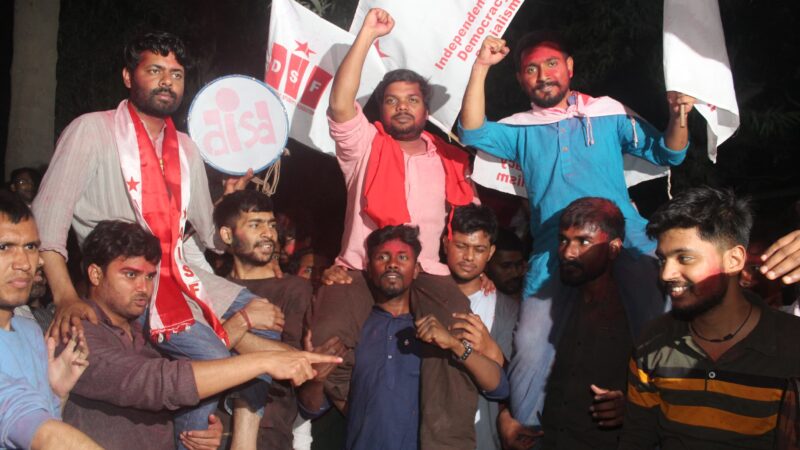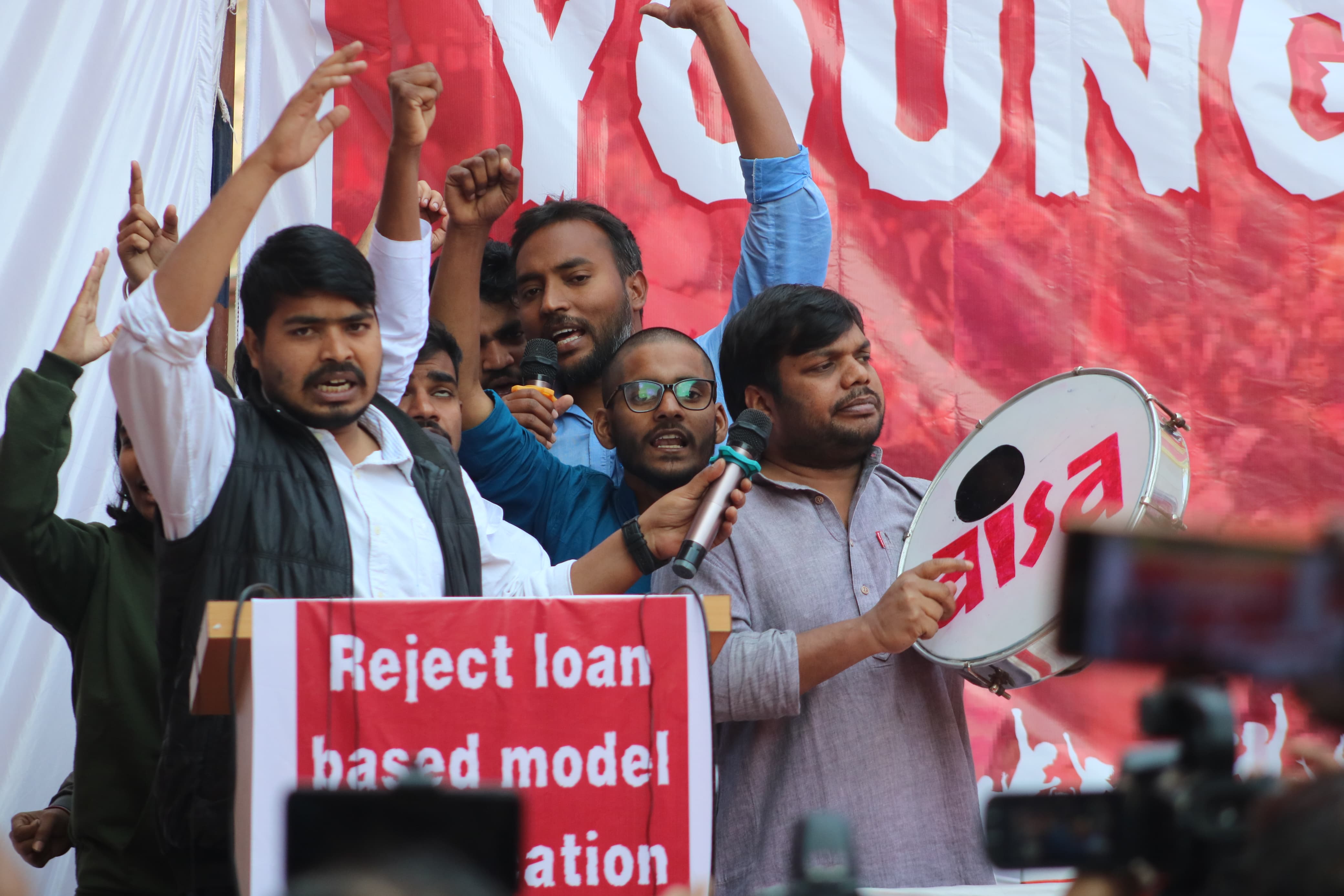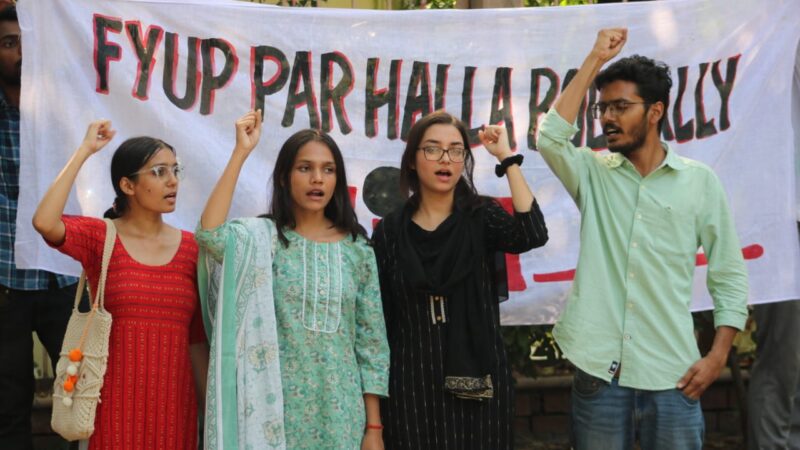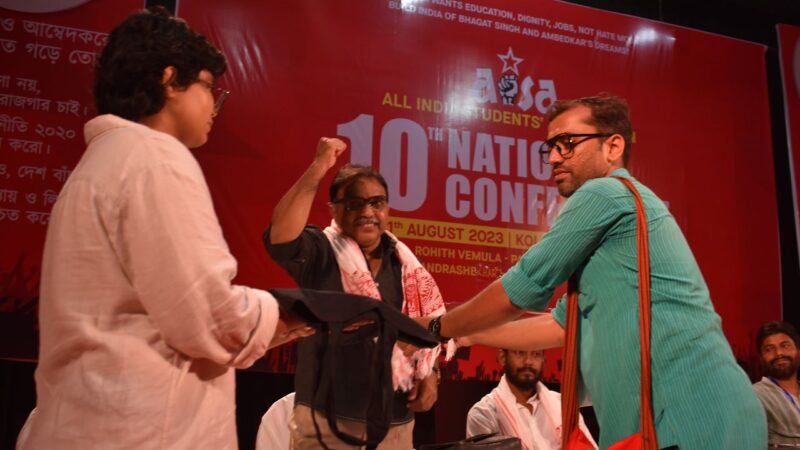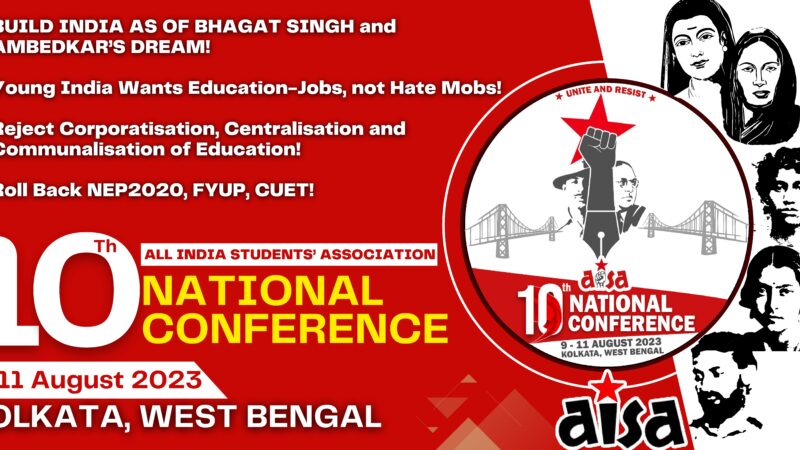Why It Is Important To Reject EVMs and Return to Paper Ballots

There are growing questions about EVMs that can no longer be ignored. Various civil society groups have issued an appeal asking political parties “to move forward to reject EVM and revert to paper ballot and if necessary to boycott elections to press forward this demand.” Let’s examine the case against EVMs and the arguments offered by EVM defenders.
As the appeal by civil society groups and individuals cautions, “it is important not to fall into the trap of blind ‘support’ vs ‘rejection’ of the possibility of EVM tampering. The point is that the Indian voter should not be asked to blindly trust machines and accept the ‘assurances’ of ‘experts’.”
EVM Irregularities And Failures:
Major Mismatch Between Votes Polled & Votes Counted
There is a serious mismatch between the date released by the ECI on voter turnout/votes polled, and the votes counted data on EVMs, in over 220 of the 373 constituencies which went to poll in the first four phases of Lok Sabha Elections 2019; and vote deficits were found in the remaining constituencies. Now the ECI is refusing to release data of votes polled, claiming it does not have the data!
(EVM Vote Count Mismatch In 370+ Seats and EC Refuses to Explain, The Quint 31 May 2019. )
Three former CECs – SY Qureshi, N Gopalaswami, HS Brahma – have said that the EC needs explain these serious discrepancies. We are told that EVM machines are foolproof and there should not be a single mismatch in votes polled and votes counted. In an election, every voter’s vote is equally precious – and a discrepancy or doubt in even a single vote should not be tolerated. Here, we are being asked to tolerate discrepancies and doubts about thousands of votes!
The issue here is not only about questioning the election outcome. No matter which party wins or loses, the key issue is that every voter should be able to transparently verify that their vote is securely cast and has been counted.
EVMs Being Stored And Transported Violating Protocol
Some days before the counting of votes, several videos surfaced on social media, showing EVMs being stored in illegal cars and shops and transported in random vehicles – all in violation of the strict protocol that is supposedly in place. Again, the ECI had no explanation of this strange phenomenon. (Multiple videos of EVMs stacked in cars, shops surface on Twitter, May 21, 2019, India Today )
Missing EVMs
A public interest litigation in Bombay High Court also points out that 20 lakh EVMs have gone “missing” from the possession of the EC. The ECI issued a sweeping denial, saying that no EVMs were missing. But it could not deny or explain how there was a mismatch between the order and supply of EVMs in the records of the ECI, and the records provided by the EVM manufacturers— Bharat Electronics Limited (BEL) and Electronics Corporation of India Limited (ECIL). (‘Missing’ EVMs, The Frontline, May 24, 2019)
Frequently Asked Questions (FAQs)
on EVM-VVPAT Tampering:
-
If You Question EVMs, Are You A “Bad Loser”?
Some say that if the political Opposition and people’s movements raise the question of EVM manipulation, it meant they are seeking to blame BJP’s victories on EVMs and unwilling to face up to their own shortcomings and mistakes, and unwilling to face up to changing social and political realities.
But surely we can recognise and rise up to the social and political realities, including the Opposition’s political and organisational shortcomings, while also demanding answers to disturbing questions about EVMs? Surely it is as important to eliminate the slightest chance of manipulation of India’s elec-tions – even while we take up the political and organisational challenges of resisting the RSS and BJP?
Questioning EVMs is not about questioning BJP – it is about safeguarding the transparency and credibility of India’s democracy, irrespective of which party wins or loses.
-
But Experts Say EVMs Are Safe?
Germany’s highest court delivered a strong verdict in 2009 holding the exclusive use of EVMs to be unconstitutional and explained why paper ballots are preferable. That verdict stated that every voter should be able to examine and verify “the result …reliably and without any specialist knowledge of the subject”
It is clear that the Indian EVMs fail on this count – since it is impossible to verify the votes counted by EVMs without expert/specialist knowledge.
The Indian voter should not be asked to blindly trust machines and accept the assurances of ‘experts’. Every voter, irrespective of their level of literacy, education, or expertise should be able to transparently verify, with their own eyes, that their vote is what has gone into the box that will be counted. This is the reason why paper ballots are preferred even in advanced countries where the best technology is cheaply available.
-
Surely The Strict Protocols Followed By EC Can Prevent EVM Tampering?
Any machine can be tampered with, and machines are only as trustworthy as the institution and individuals that control them. In the 2019 elections, the EC’s blatant bias was on open display.
Now, it turns out that the EC has lied about many crucial things:
a) About EVM Chips being One Time Programmable: ECI said that the software used in EVMs is One Time Programmable (OTP), and thus cannot be rewritten and tampered with. But a response to a Right to Information (RTI) query tells us that the software in EVMs is not OTP and can indeed be rewritten!
(https://www.humanrightsinitiative.org/download/ECI-RTI-docs.pdf)
b) About Private Players Involved in Handling EVMs: ECI said that EVMs are programmed and handled only by employees of the public sector BEL and ECIL – never by any private or contract employees. Now, a reply to an RTI query has shown that ECIL and BEL employed private companies and contract employees to handle EVMs! Who can vouch for the credibility of private players or contract employees? Is it not possible that they may be influenced/paid to tamper with EVMs?
(Pvt Consultants Involved in EVM-VVPAT Checks–Why Did EC Hide It?, The Quint, Aug 3, 2019,)
c) About GPS tracked movement of EVM machines: EVM manufacturers and distributers admit that EVMs are not always GPS-tracked and transported under strict supervision. According to a recent RTI query, around 20 lakh EVM machines are effectively missing. In another RTI response, the ECI refuses to share the GPS data of trucks transporting EVMs.
(EC Ordered GPS Tracking of EVM Movement But Says No Info Available, The Quint, June 7, 2019,)
We need to ask: WHY is the ECI lying on so many crucial points? Why so much secrecy? What does it have to hide?
-
But EVM Tampering Is Highly Unlikely And Difficult, Isn’t It?
Some people feel, tampering of EVMs would require the involvement of thousands of people and several institutions, which is highly unlikely. Also, regulations and safeguards are in place which means Indian EVMs cannot be tampered with.
But the REGULATIONS AND SAFEGUARDS that are supposed to prevent the tampering of EVMs have often been PUBLICLY FLOUTED.
1) We already saw that the software used in EVMs is NOT One Time Programmable (OTP), and thus it can be rewritten and tampered with. But who can tamper with it, and when? We already saw that private and contract employees are secretly allowed to handle EVMs – they can easily be used to rewrite EVM software.
2) The ECI has claimed that unlike machines in Europe for instance, EVMs in India are stand-alone devices unconnected to the Internet. BUT – we now know that remote access software can be (illegally) installed in EVM machines, thus enabling them to be manipulated via the internet by external agents. See for instance the article ‘The Myth of the Hacker-Proof Voting Machine’ (The New York Times Magazine, Feb 21, 2018), which states that machines used in the 2016 US Presidential Elections were compromised. Who can install remote access software and when? As in (1) above, private and contract employees who handle EVMs, can easily do it. (https://www.nytimes.com/2018/02/21/magazine/the-myth-of-the-hacker-proof-voting-machine.html).
3) We have also shown in the last point that ECI failed to substantiate its claim of ‘EVM movement being GPS tracked’, when information regarding missing EVMs and GPS data were demanded under RTI.
-
We Heard That Indian EVMs Are Being Adopted By Other Countries? Why Reject EVMs in India, Then?
Some countries did seek to source EVMs from India. There was an attempt to introduce Indian EVMs in Botswana elections, due in October 2019. This move was opposed by Botswana Opposition parties, and challenged it in Court.
The Botswana Election Commission asked the Election Commission of India (ECI) to depose as star witnesses before the Francistown High Court on the merits of using EVMs. They also asked the ECI to bring Indian EVMs and hold a demonstration of the EVM and the VVPAT system in Botswana’s court to dispel doubts over the credibility of the machines.
The ECI refused. Sunday Standard, a newspaper in Botswana, reported on 20 Nov 2018 that BEL representatives, who refused to reveal their names, carried samples, instead of actual EVMs, for demonstration to the media and potential hackers there. The samples were reportedly labelled “Electoral Commission of Namibia” and the BEL representatives maintained that they could not be hacked but refused to give access to hackers at the meet.” The law to introduce EVMs in Botswana was withdrawn.
(Indian EVMs cause furore in Botswana, The Economic Times, May 31, 2018 ), (IEC shuts down EVM office, The Sunday Standard, Nov 20, 2018.)
WHY did ECI avoid demonstrating before the Botswana court that Indian EVMs machines cannot be hacked ?
-
Aren’t EVMs A Technological Advance Over Paper Ballots? Surely Advanced Countries Prefer EVMs?
Complicated technology does not always favour democracy: the simplest systems are often the best for democracy. Advanced capitalist countries, in fact, prefer paper ballots.
Countries like the Netherlands, Ireland and Germany once used non-networked EVMs like India uses – now, they have all banned EVM use.
England, France and Italy have said they will not use EVMs.
UK, Japan, Canada and Singapore use paper ballots
The US still uses EVMs, but there is widespread, growing concern about hacking in the US. The New York Times recently carried an article about “The Myth of the Hacker-Proof Voting Machine,” which quoted Susan Greenhalgh, a spokeswoman for the National Election Defense Coalition in the US:
‘‘The incorrect assertion that voting machines or voting systems can’t be hacked by remote attackers because they are ‘not connected to the internet’ is not just wrong, it’s damaging. This oft-repeated myth instils a false sense of security that is inhibiting officials and lawmakers from urgently requiring that all voting systems use paper ballots and that all elections be robustly audited.’’
A contender for the 2020 US presidential election, Senator Kamala Harris, recently tweeted in support of the demand to use paper ballots to secure the US election from foreign interference, pointing out that a piece of paper cannot be hacked like a computer can.
-
Don’t EVMs Fare Better Than Paper Ballots On Transparency, Verifiability, and Secrecy?
In a 22 January 2019 piece in The Hindu, G Sampath pointed out that “transparency, verifiability, and secrecy are the three pillars of a free and fair election,” which means that not only must the anonymous vote “be recorded correctly and counted correctly, it must also be seen to be recorded correctly and counted correctly. The recording and counting process must be accessible to, and verifiable by, the public.”
Sampath noted that “Paper ballots obviously do” pass these three tests, since “The voter can visually confirm that her selection has been registered, the voting happens in secret, and the counting happens in front of her representative’s eyes.” Whereas EVMs fail these tests: “If we take the first two criteria, EVMs are neither transparent nor verifiable. Neither can the voter see her vote being recorded, nor can it be verified later whether the vote was recorded correctly. What is verifiable is the total number of votes cast, not the choice expressed in each vote. An electronic display of the voter’s selection may not be the same as the vote stored electronically in the machine’s memory.”
Sampath points out that EVMs endanger the secrecy/anonymity of the ballot too. “With the paper ballot, the EC could mix ballot papers from different booths before counting, so that voting preferences could not be connected to a given locality. But with EVMs, we are back to booth-wise counting, which allows one to discern voting patterns and renders marginalised communities vulnerable to pressure. Totaliser machines can remedy this, but the EC has shown no intent to adopt them.”
We saw, in the 2019 elections, how BJP candidate (now MP) Maneka Gandhi threatened to discriminate against Muslims who failed to vote for BJP. EVMs made it easy to know whether or not booths with mostly Muslim voters voted for her or not.
-
What about if VVPATs are used?
Lets recall that on 8 Oct 2013, the Supreme Court ordered phased introduction of VVPAT machines, noting that “the ‘paper trail’ is an indispensable requirement of free and fair elections… With an intent to have fullest transparency in the system and to restore the confidence of the voters, it is necessary to set up EVMs with VVPAT system because vote is nothing but an act of expression which has immense importance in democratic system.’’
The court’s order came on a PIL by BJP leader Dr. Subramanian Swamy. Now, two important issues follow from this verdict. Firstly, isn’t the Apex court’s emphasis that ‘’paper trail is indispensible for free and fair elections’’ an acknowledgement that EVMs per se are not full proof? Secondly, what real and substantial purpose would be served if VVPAT slips are not hand-counted and matched with EVM count? Just having VVPAT without matching its count with EVM can hardly work as a safeguard for transparency and verifiability.
However, we now see there is an immense opposition by the ECI to do even 50% matching of EVM and VVPAT counts. Are VVPATs meant to be mere show pieces? If EVMs and VVPATs are a 100% accurate, what explains the ECI’s adamant refusal to hand-count VVPATs?
The ECI says this will delay counting. But what is more important – the credibility of the voting process, or speed in counting? What harm with a little delay to count votes, if it makes the results more credible and transparent? The ECI has reduced VVPATs to a showpiece – while avoiding any attempt to actually use VVPATs to ensure greater transparency.
-
With Paper Ballots, Booths Can Be Captured – So Aren’t EVMs Safer?
Booth capturing indeed used to be a problem with paper ballots. But booth-capturing requires open use of force and violence. In the days of cell-phones, booth-capturing cannot remain secret – and so, if votes are stolen, everyone will know about it and a re-poll can be ordered. But in case EVMs are tampered with, the stealing of votes happens in secret, and there is no correction possible. The theft cannot be caught. This is why paper ballots are far safer and more preferable.
-
Can Suspicion Be Enough Ground To Scrap EVMs?
Sampath pointed out that “there doesn’t have to be incontrovertible evidence of EVM-tampering for a nation to return to paper ballot. Suspicion is enough, and there is enough of it already.”
The German court verdict had said: “The democratic legitimacy of the election demands that the election events be controllable so that… unjustified suspicion can be refuted.” Even if a suspicion is unjustified, it must be possible to refute it. It is not enough to tell the “doubters” to blindly trust the EVMs or the EC. As Sampath put it, “The EC has always maintained that suspicions against EVMs are unjustified. Clearly, the solution is not to dismiss EVM-sceptics as ignorant technophobes. Rather, the EC is obliged to provide the people of India a polling process capable of refuting unjustified suspicion, as this is a basic requirement for democratic legitimacy, not an optional accessory.”
-
By Opposing EVMs, Is The Opposition Seeking Excuses For Its Defeat?
BJP is the only major political party today which is adamantly opposed to paper ballot elections. BJP says that the Opposition is only raising questions about EVMs because it wants to make excuses for its defeat.
But if BJP is so sure of its total hegemony and huge popularity across India, why is it so resistant to holding elections via paper ballot? Whether paper ballots or EVMs are used, surely the result will be the same? So why not put all doubts at rest and contest and win elections via paper ballots instead of EVMs?
Also, remember that it is the BJP which first raised the issue of EVM tampering. BJP spokesperson GVL Narasimha Rao wrote a book titled “Democracy at Risk! Can We Trust Our Electronic Voting Machines.” The book has an introduction by L. K. Advani, who had argued against EVMs in 2010, pointing out that many countries have discontinued their use.
The question is not – “Why are Opposition parties opposing EVMs.” The real question is: “Why has BJP done a U-turn on its own position on EVMs now?”
Join the movement to empower ourselves as voters and citizens! Raise the Demand – “No EVMs, Back To Ballots!”
To support AISA, Click here to donate.
